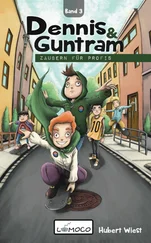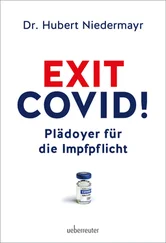Hubert Aquin - Next Episode
Здесь есть возможность читать онлайн «Hubert Aquin - Next Episode» весь текст электронной книги совершенно бесплатно (целиком полную версию без сокращений). В некоторых случаях можно слушать аудио, скачать через торрент в формате fb2 и присутствует краткое содержание. Год выпуска: 2001, ISBN: 2001, Издательство: McClelland & Stewart, Жанр: Современная проза, на английском языке. Описание произведения, (предисловие) а так же отзывы посетителей доступны на портале библиотеки ЛибКат.
- Название:Next Episode
- Автор:
- Издательство:McClelland & Stewart
- Жанр:
- Год:2001
- ISBN:9781551996240
- Рейтинг книги:3 / 5. Голосов: 1
-
Избранное:Добавить в избранное
- Отзывы:
-
Ваша оценка:
- 60
- 1
- 2
- 3
- 4
- 5
Next Episode: краткое содержание, описание и аннотация
Предлагаем к чтению аннотацию, описание, краткое содержание или предисловие (зависит от того, что написал сам автор книги «Next Episode»). Если вы не нашли необходимую информацию о книге — напишите в комментариях, мы постараемся отыскать её.
is a disturbing and yet deeply moving novel of dissent and distress. As he awaits trial, a young separatist writes an espionage story in the psychiatric ward of the Montreal prison where he has been detained. Sheila Fischman’s bold new translation captures the pulsating life of Aquin’s complex exploration of the political realities of contemporary Quebec.
Next Episode — читать онлайн бесплатно полную книгу (весь текст) целиком
Ниже представлен текст книги, разбитый по страницам. Система сохранения места последней прочитанной страницы, позволяет с удобством читать онлайн бесплатно книгу «Next Episode», без необходимости каждый раз заново искать на чём Вы остановились. Поставьте закладку, и сможете в любой момент перейти на страницу, на которой закончили чтение.
Интервал:
Закладка:
The more I look at it, the more I’m enamoured of the lacquered chest of drawers, covered with dalmatics, where a battle is being fought by two soldiers in armour in an explosion of shades of blue and vermilion. On the chest sits a book bound in grainy leather: History of Julius Caesar: The Civil Wars , by one Colonel Stoffel, published by Casimir Delavigne, Paris, 1876. I take the precious volume back to my chair, but instead of opening it, I gaze at the magnificent lacquered chest, fascinated by the violent yet peaceful battle adorning this exquisite piece. The two warriors straining towards each other in complementary positions have been immobilized in a kind of cruel embrace, a duel to the death that serves as a luminous veneer for the dark chest. Everything here is astonishing. Every object H. de Heutz has chosen appeals to me. I notice that just above the chest of drawers he’s hung a very rare engraved reproduction of “The Death of General Wolfe” by Benjamin West; the original, which belongs to the Marquis of Westminster, hangs in the Grosvenor Gallery. This print is now worth more than the large canvas. It’s a genuine masterpiece printed from his original by the painter himself: the few copies include those in Buckingham Palace, the Musée de Québec, and the collection of Prince Esterhazy. H. de Heutz is one of those unlikely individuals, millionaire or connoisseur, who never makes a mistake. This brilliant copy of “The Death of General Wolfe,” which was purchased by George III some centuries before H. de Heutz bought his, thrills me! For that matter the remarkable luxury and good taste throughout this chateau fill me with a kind of haunting memory I’ve never known before: the pleasure of living in a house can then resemble the bewildered complacency I experience in this sweeping, majestic salon. H. de Heutz lives in a kind of altered universe that’s never been available to me, while I carry on my chaotic exile in hotels where I never really live. Through the casement of the French window the exuberant landscape spreads all the way to the misty cliff faces of France across the lake. Ah, how I would love to live in this refuge with all its mellow pleasures, amid the expression of an ancient will to live that has not been lost. A confident power hides behind these well-chosen objects. Draped in its periods and styles, this salon secretly reveals itself to me. Yes, the peeled gilding in the dark texture of Benjamin West’s work and the panelling above the parquet floor holds a disturbing riddle. Between Regency and Henri II, in this burst of festooned mouldings and evocations, I try to catalogue the components of a man I’ve sworn to kill. In vain I attempt to decipher the luminous crypt he lives in, but the beauty of this place fills me with emotion.
Never has H. de Heutz seemed as mysterious as he does right now in this chateau he elegantly haunts. But is the man I’m waiting for the enemy agent I’m to kill in cold blood? It seems unlikely because the man who lives here transcends brilliantly the image of a victim I’ve composed. This man is defined by something other than his counter-revolutionary mission. His double identity is disproportionate to the role he fills: there’s something excessive about his cover, and that worries me. I’m grappling with someone I don’t understand. Is the man who purchased that two-tiered buffet, the officer’s chair, the chest of drawers with the two warriors, the man who hung Benjamin West’s “The Death of General Wolfe” on the salon wall, is he the phony specialist in Scipio Africanus I took aim at near the Château de Coppet? And if it’s not H. de Heutz who lives here (or Carl von Ryndt or even the pathetic François-Marc de Saugy, what difference does it make!), who adorns his living space with all these objects, then who is the other person? His partner, his chief perhaps, or the blonde woman — and is she really blonde? — whom I spotted so close to me? How can I know? One thing is certain: K has put me on an absolutely amazing trail. In any event, her instructions have proven to be troubling. Now I’m bursting to tell her about everything that’s happened to me since yesterday and describe the unforgettable secret of this chateau deep in the Vaudois countryside. But first I must kill H. de Heutz — cleanly, unhesitatingly — and as soon as the deed is done, take the blue Opel out of the garage, turn right on the road that runs through the village, floor the gas pedal, and make my way to Lausanne, turning left at the Busigny fork.
While I gaze at the lacquered chest of drawers where two tawny-coloured warriors are locked together in death, I leaf mechanically through Colonel Stoffel’s book. This artistically bound volume has an anonymous ex libris on its flyleaf, something I’ve never seen except, of course, in stationery stores that sell ex libris with a blank space for the owner’s name. This one, though, is actually more indecipherable than anonymous. Where the owner’s name should be, there’s an intricate drawing that coils around itself in a series of loops and whorls that form a Gordian knot, a cluster of initials superimposed in every possible graphic layout. The deeper I plunge into these tangled tentacles that take the place of a stamp, the more I’m struck by the premeditated nature of this masterpiece of confusion. I count an endless quantity of articulations, and as I reconstitute the manifold designs of these lines, I think I can make out some Arabic letters. In this nest of tracery I seem to recognize the scrolls and spiral serifs of the illuminated capitals that start the suras in certain Persian copies of the Koran. Yet as I peer at this hermetic code, I can see that, contrary to appearances, they’re not Arabic letters but the initials of the man who’s interested in Colonel Stoffel’s History of Julius Caesar: The Civil Wars . Between this work of military history and H. de Heutz’s presentation last night in Geneva on the battle between Caesar and the brave Helvetians at Genaba, there is an undeniable link — just as there’s a conclusive correlation between the man who lives in this impossible chateau and the spuriously anonymous ex libris in whose depths I’m trying to locate the key to a riddle. This holds true for the entire chateau which mystifies me not so much as a dwelling but as a code. For these engraved chests filled with nothing, these roundels that send back images of war, and this apparently forgotten book that tells of Caesar’s battles are just so many initial letters bound together inextricably in a haughty and fascinating knot. It all bears a signature, that of the man for whom I’m waiting.
The bright afternoon flows by in the drowsy countryside. I can make out the muted dazzle in the French doors that let me see in the distance the Alps disintegrating slowly in the bluish water of Lac Léman. Motionless and vigilant, I stand watch here in the enemy camp. Arrayed in the ornamental attributes of H. de Heutz, surrounded by furniture chosen by him, and sitting in his officer’s chair close to “The Death of General Wolfe,” I’ve made myself a prisoner of this man, the better to approach him and, ultimately, to kill him.
I wonder in what dark corner the blonde woman who witnessed my conversation with H. de Heutz this morning could be hidden. The grand salon is impractical. The only other place I can imagine is the vestibule that opens on one side onto the main entrance and on the other onto the garage and the spiral staircase that goes upstairs. When I left the salon with H. de Heutz at point-blank range, he was obviously the one who was leading. He’d done nothing more or less than manipulate me as he showed me quite naturally to the front door. And it didn’t even cross my mind to question his integrity as a guide, nor did I think of glancing at the other end of the vestibule; but even had I done so furtively, I wouldn’t have noticed the woman who, simply by drawing back, could make herself invisible, for example by hiding behind this massive credenza. She could have camouflaged herself easily by standing between the credenza and the frame of the door to the garage. I didn’t see anything and I couldn’t have seen anything. It’s at that very spot in this makeshift sentry box between the immunized piece of furniture and the garage door that I’ll position myself presently when H. de Heutz gets here. And if I want to speed things, I just have to keep an eye on the entrance to the grounds by standing behind the door with a peep-hole that opens onto the front of the chateau, allowing one to see any cars that are coming or going. Between there and the credenza there is just the width of the vestibule, that is, two strides. When I see H. de Heutz’s car pull up near the entrance to the chateau, I can simply cross the vestibule and stand behind the credenza, ready to open fire on the enemy. Till then I don’t have much to do, even though my freedom of movement on the ground floor is curtailed; I’m actually confined to a lookout post that is an isosceles triangle, which I mentally trace by drawing a line between my hiding place and the lacquered chest of drawers with the entwined warriors, another from the chest of drawers to the credenza, and finally another from the credenza back to my hiding place. Inside this Euclidean space then I can move very easily, with no fear of being surprised because from every imaginable position inside the triangle, I can get to my firing position to the right of the credenza in a fraction of a second. I just have to wait calmly for H. de Heutz, while he’s probably pacing Place Simon-Goulart, attracting the attention of a policeman on duty, perhaps, or the curiosity of a teller in the Banque Arabe. Because rashly strolling around outside a bank is liable to lead to a charge of conspiracy.
Читать дальшеИнтервал:
Закладка:
Похожие книги на «Next Episode»
Представляем Вашему вниманию похожие книги на «Next Episode» списком для выбора. Мы отобрали схожую по названию и смыслу литературу в надежде предоставить читателям больше вариантов отыскать новые, интересные, ещё непрочитанные произведения.
Обсуждение, отзывы о книге «Next Episode» и просто собственные мнения читателей. Оставьте ваши комментарии, напишите, что Вы думаете о произведении, его смысле или главных героях. Укажите что конкретно понравилось, а что нет, и почему Вы так считаете.












